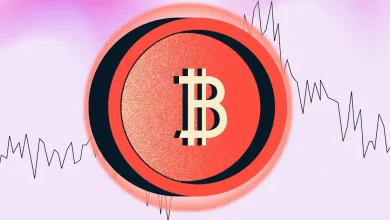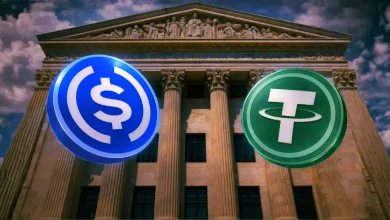
The Philippines adopts a twin-regulator model for crypto tokens, involving BSP and SEC for licensing, token oversight, and compliance.
Strict VASP licensing, AML rules, and penalties up to ₱5M or imprisonment aim to boost investor protection and regulatory clarity.
The Philippines has introduced a comprehensive framework for the Regulatory Requirements and Considerations for Listing Cryptocurrency Tokens, establishing a twin-regulator model to govern token activities, licensing, and investor protections. The framework sets clear rules for token classification, VASP licensing, and key compliance obligations.
Twin Regulatory Model for Crypto Tokens
The new framework adopts a dual regulatory approach, with both the Bangko Sentral ng Pilipinas (BSP) and the Securities and Exchange Commission (SEC) playing crucial roles:
- BSP (Bangko Sentral ng Pilipinas)
Oversees Virtual Asset Service Providers (VASPs), ensuring that activities such as exchange, transfer, and custody comply with consumer protection and AML/CFT standards. - SEC (Securities and Exchange Commission)
Regulates tokens classified as securities under the Securities Regulation Code (SRC). It ensures proper registration or exemption of token offerings and listings.
Key Laws Impacting Crypto Token Listings
The regulatory framework incorporates several legal provisions affecting token issuance and operations:
- BIR Revenue Memorandum Circulars 94-2014 & 85-2018
Treats crypto assets as property, applying capital gains (6%), income, and business taxes. - RA 10173 – Data Privacy Act
Applies to crypto exchanges and token issuers collecting personal data. - RA 10175 – Cybercrime Prevention Act
Targets cybercrime, fraud, and other illegal activities in the crypto space with strict penalties.
VASP Licensing and Obligations
VASPs operating in the Philippines must secure BSP approval and comply with strict requirements:
- Licensing Conditions
Includes capital requirements, governance structure, cybersecurity standards, and consumer protection measures. - Operational Obligations
Mandatory risk scoring, KYC, AML compliance, and token classification analysis. - Transaction Monitoring
Exchanges must implement Travel Rule-compliant transmissions (as per FATF Recommendation 15) for crypto transfers over US$1,000.
Penalties for Non-Compliance
The framework imposes heavy penalties for failing to meet regulatory standards:
- SEC Non-Compliance
- Fines up to ₱5 million
- Additional ₱2,000 per day for continuing violations
- 7–21 years imprisonment for wilful false statements
- Fines up to ₱5 million
- BSP Circular 118 Violations
- License suspension or revocation
- Fines up to three times the transaction value
- License suspension or revocation
- AML Violations
- ₱5 million administrative fine
- Up to 14 years imprisonment
- ₱5 million administrative fine
- Data Privacy Violations
- Fines between ₱500,000 to ₱5 million per act
- 1–6 years imprisonment for misuse of sensitive data
- Fines between ₱500,000 to ₱5 million per act
Final Thoughts
The Philippines’ new crypto token listing framework sets a clear regulatory pathway for token classification, VASP licensing, cross-border trading, and exchange compliance. It emphasizes investor protection, tax clarity, and enforcement of cybersecurity and data privacy, positioning the country as a proactive crypto-regulatory hub in Southeast Asia.
Never Miss a Beat in the Crypto World!
Stay ahead with breaking news, expert analysis, and real-time updates on the latest trends in Bitcoin, altcoins, DeFi, NFTs, and more.
FAQs
Crypto assets are treated as property. Capital gains tax can be up to 6%, while income and business taxes apply to crypto earned through staking, mining, or payments.
The Bangko Sentral ng Pilipinas (BSP) oversees Virtual Asset Service Providers (VASPs), while the Securities and Exchange Commission (SEC) regulates tokens classified as securities.
Yes, the Philippines is generally considered crypto-friendly. It has a progressive regulatory framework with a twin-regulator model, high crypto adoption, and a positive government outlook towards digital assets.
Trust with CoinPedia:
CoinPedia has been delivering accurate and timely cryptocurrency and blockchain updates since 2017. All content is created by our expert panel of analysts and journalists, following strict Editorial Guidelines based on E-E-A-T (Experience, Expertise, Authoritativeness, Trustworthiness). Every article is fact-checked against reputable sources to ensure accuracy, transparency, and reliability. Our review policy guarantees unbiased evaluations when recommending exchanges, platforms, or tools. We strive to provide timely updates about everything crypto & blockchain, right from startups to industry majors.
Investment Disclaimer:
All opinions and insights shared represent the author's own views on current market conditions. Please do your own research before making investment decisions. Neither the writer nor the publication assumes responsibility for your financial choices.
Sponsored and Advertisements:
Sponsored content and affiliate links may appear on our site. Advertisements are marked clearly, and our editorial content remains entirely independent from our ad partners.







